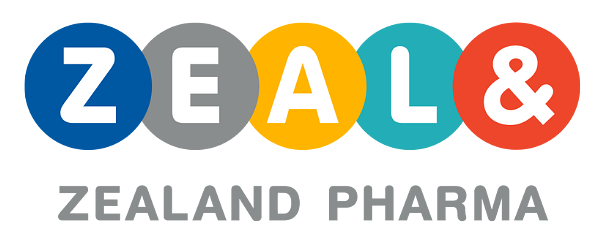
Zealand Pharma’s Pipeline Fuels Growth as Obesity Drug Race Heats Up
Danish biotech Zealand Pharma is rapidly transforming from a research-focused firm to a commercial powerhouse, driven by promising obesity treatments and a major partnership with Roche. New data readouts loom large for 2026.
Zealand Pharma’s Pipeline Fuels Growth as Obesity Drug Race Heats Up
NEW YORK, NY – November 13, 2025
Rapid Expansion and Financial Transformation
Zealand Pharma is experiencing a period of significant growth, fueled by strategic partnerships and promising clinical data in the burgeoning obesity treatment market. The Danish biotechnology company recently reported revenues of DKK 9.146 billion (approximately $1.3 billion USD) for the first nine months of 2025, a dramatic increase from DKK 54 million during the same period last year. This impressive surge is largely attributable to a substantial upfront payment received from Roche for the co-development and commercialization of its peptide-based obesity treatment, petrelintide. The company’s financial performance marks a pivotal shift, transitioning Zealand from a primarily research-focused entity to one with a clear path to commercial success.
“The company has truly turned a corner,” noted one industry analyst. “They were known for innovative science, but now they have the funding and a partner in Roche to really bring their products to market. It’s a significant transformation.” Net operating expenses remain substantial, but have been carefully managed, with narrowed guidance for the year, indicating effective financial control.
Competing in the Obesity Treatment Landscape
The global obesity treatment market is experiencing explosive growth, projected to reach over $82 billion by 2032, according to recent analyses. Dominant players like Novo Nordisk and Eli Lilly are leading the charge with established drugs like Wegovy and Zepbound, but the market remains competitive, with numerous companies vying for a piece of the action. Zealand Pharma aims to carve out its niche with a differentiated approach centered on peptide-based therapies. Its pipeline features two key candidates: petrelintide and survodutide, both designed to address obesity through unique mechanisms of action.
Petrelintide, an amylin analog, works by enhancing satiety and improving the body's response to leptin. Survodutide, a dual GLP-1/glucagon receptor agonist, seeks to increase energy expenditure and reduce food intake. While GLP-1 drugs like those offered by Novo Nordisk and Eli Lilly have shown significant efficacy, some experts believe that targeting additional pathways – such as amylin or glucagon – could offer further improvements in weight loss and metabolic health. “There’s a lot of interest in finding the next generation of obesity treatments,” explained a clinical researcher specializing in metabolic diseases. “Companies are looking beyond GLP-1 to address the complex biology of obesity and provide more effective options for patients.”
Pipeline Progress and Upcoming Data Readouts
Both petrelintide and survodutide are currently in late-stage clinical trials. Phase 3 data for petrelintide and survodutide are anticipated in the first half of 2026. Analysts are closely watching these data readouts, as they will be crucial in determining the potential market value of these candidates. Positive results could position Zealand Pharma as a major player in the obesity treatment market, while disappointing data could significantly impact the company’s stock price and future prospects. The company recently completed key enrollment milestones for both trials, signaling confidence in the clinical programs.
“The upcoming data will be pivotal,” stated a financial analyst covering the biotech sector. “Investors are eager to see how these compounds perform in head-to-head comparisons with existing therapies.” The company's partnership with Roche for petrelintide strengthens its commercial prospects, providing access to Roche’s global marketing and distribution network. The collaboration also includes plans to develop a fixed-dose combination of petrelintide with Roche’s own incretin asset, potentially offering a synergistic effect and enhanced efficacy.
Survodutide, licensed to Boehringer Ingelheim, has a different commercial pathway, but offers substantial potential revenue through milestone payments and royalties. The company is also investigating its potential in metabolic dysfunction-associated steatohepatitis (MASH), further expanding its therapeutic reach.
Future Outlook and Strategic Partnerships
Zealand Pharma’s success is not solely dependent on its obesity pipeline. The company continues to invest in research and development across other therapeutic areas, including chronic inflammation and rare diseases. However, the obesity market represents a significant growth opportunity, and the company is strategically focused on maximizing its potential in this space.
The partnership with Roche is a key component of this strategy, providing financial resources, expertise, and a global commercial platform. The collaboration exemplifies a growing trend in the pharmaceutical industry, where companies are increasingly partnering to share risks and accelerate innovation. “These collaborations are becoming more common,” noted one industry observer. “They allow companies to leverage each other’s strengths and bring new therapies to market more efficiently.” The success of Zealand Pharma’s strategic partnerships, coupled with positive data from its late-stage clinical trials, will be crucial in determining its long-term trajectory and establishing its position as a leading innovator in the global healthcare landscape.
